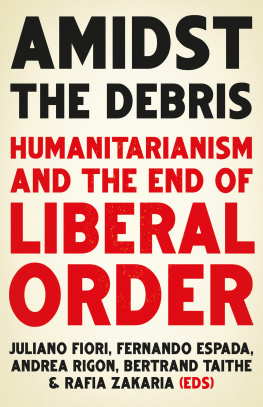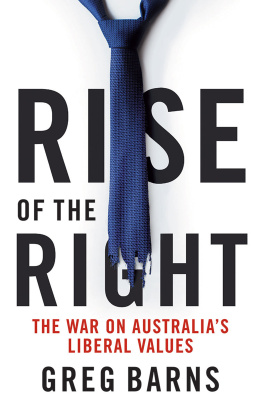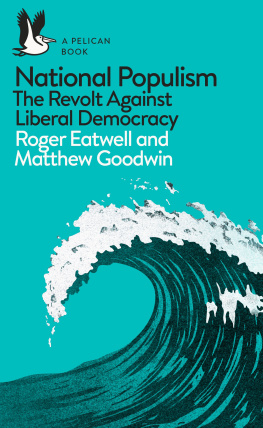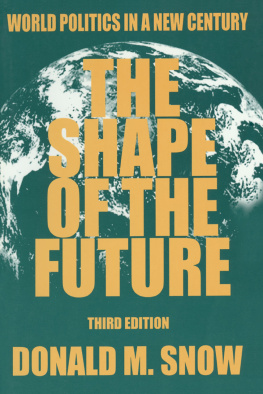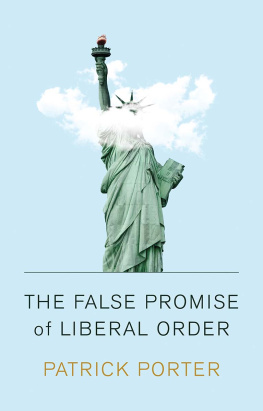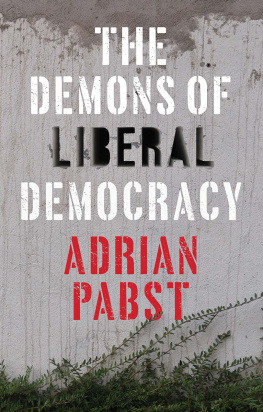Contents
Page List
Guide
AMIDST THE DEBRIS
JULIANO FIORI, FERNANDO ESPADA, ANDREA RIGON, BERTRAND TAITHE and RAFIA ZAKARIA
(Editors)
Amidst the Debris
Humanitarianism and the End of Liberal Order

HURST & COMPANY, LONDON
First published in the United Kingdom in 2021 by
C. Hurst & Co. (Publishers) Ltd.,
83 Torbay Road, London, NW6 7DT
Copyright Juliano Fiori, Fernando Espada, Andrea Rigon,
Bertrand Taithe, Rafia Zakaria and the Contributors, 2021
All rights reserved.
The right of Juliano Fiori, Fernando Espada, Andrea Rigon, Bertrand Taithe, Rafia Zakaria and the Contributors to be identified as the authors of this publication is asserted by them in accordance with the Copyright, Designs and Patents Act, 1988.
Distributed in the United States, Canada and Latin America by Oxford University Press, 198 Madison Avenue, New York, NY 10016, United States of America.
A Cataloguing-in-Publication data record for this book is available from the British Library.
ISBN: 9781787383968
This book is printed using paper from registered sustainable and managed sources.
www.hurstpublishers.com
CONTENTS
Juliano Fiori, Fernando Espada, Andrea Rigon, Bertrand Taithe, and Rafia Zakaria
PART ONE
THE POLITICS OF HUMANITARIAN PRACTICE
Emily Baughan
Gareth Owen
Nimmi Gowrinathan
Bertrand Taithe
Eleanor Davey
Klaus Neumann
PART TWO
THE PRACTICE OF HUMANITARIAN POLITICS
Simon Reid-Henry
Juliano Fiori
Mark Duffield
Fernando Espada
Stephanie Reist
Jos Lus Fiori
Tamirace Fakhoury
PART THREE
HUMANITARIANISM AFTER LIBERALISM?
Brad Evans
Rafia Zakaria
Serene J. Khader
Jacinta OHagan
Patricia Daley
Olivia U. Rutazibwa
ACKNOWLEDGEMENTS
At the best of times, an edited collection with twenty chapters is a considerable collective endeavour and requires sustained commitment from individual contributors. And this, it would be fair to say, has not been the best of times! The project behind this book was born almost three years before the coronavirus pandemic had infected our sense of shared life and undermined whatever assumptions we may have held about planning. It only survived thanks to the patience, generosity, and resolve of the authors and translators, who, amid a host of unexpected practical demandshome-schooling children, adapting university courses, warding off mental exhaustionproduced the chapters herein. And it is to them that we must first express our gratitude. We are also grateful for fruitful exchanges with Rony Brauman, Elena Fiddian-Qasmiyeh, Paulo Eduardo Arantes, Lilie Chouliaraki, and Andrew Thompson, which have left an impression on these pages.
Changing circumstances forced a number of authors to withdraw along the way. But if changes to the cohort of contributors inevitably affected the scope of this book, we, as editors, take responsibility for any shortcomings with respect to the diversity of perspectives and themes covered.
Two events on the political economy of humanitarian aid contributed to the early development of this project. The first was a workshop, held by Save the Children, in 2018part of a series of seminars on data and conflict, coordinated by Jonathan Fisher and funded by the Economic and Social Research Council. The second, in the same year, was a panel at the International Humanitarian Studies Association conference, in The Hague. Jessica Field, Patricia Tambourgi, and Marc DuBois participated in this latter discussion with thoughtful presentations.
In December 2019, once the concept for the book was more defined, and chapters were already in development, we held a workshop with many of the authors. It was hosted by The Bartlett Development Planning Unit at University College London, and funded by the Arts and Humanities Research Council, together with Praxis, an initiative at the University of Leeds, which promotes the role of the arts and humanities in addressing global challenges. We thank Gary Grubb, Ian Stanton, and Poppy Cullen, of the AHRC, and Stuart Taberner, Lauren Wray, and Deena Dajani, of Praxis, for their enthusiastic support. The workshop also benefitted from the participation of Andrea Warnecke, Mirella Cooper, Anna Wyatt, Chantal Meza, Gabriella Waaijman, and Mariangela Palladino.
This book is a product of a partnership between the editors and their respective institutions which reaches back almost a decade. Save the Childrens Humanitarian Affairs Team was established in 2012 and has since been dedicated to promoting critical reflection on humanitarianism. Its primary object of analysis has been the relationship between humanitarianism and politics. Not so concerned with how humanitarians might adhere to good practice, it has questioned what it is that informs humanitarians conception of the good. Rather than asking how humanitarians can protect themselves from the dirty world of politics, it has explored the agency exercised by humanitarians in processes of political and social change. It has only been able to carry out this work because of the encouragement, support, and protection provided by Gareth Owen, Save the Childrens Humanitarian Director, who has championed the idea that critical debate is the cornerstone of ethical practice.
It was this desire to explore and engage critically with broad questions about humanitarianism and politics, about the role of humanitarianism in historical processes, that brought the Humanitarian Affairs Team into contact with the Humanitarian and Conflict Response Institute at the University of Manchesteran academic centre which was already at the forefront of efforts to build bridges between humanitarian practice and scholarship. And, soon afterwards, a partnership was formalised with The Bartlett Development Planning Unit, which had six decades of experience in such bridgebuilding. These institutional relationships provided a basis for the discovery of intellectual affinities and, indeed, for friendship.
Finally, we are grateful to those at Hurst who have helped to get this book to publication. In particular, we thank Michael Dwyer for his early guidance, Daisy Leitch for her work on production, and Lara Weisweiller-Wu, our publishing editor, for her critical support and patience.
While the coronavirus pandemic affected the production of this book and reduced the amount of contact between contributors, it didnt prevent the development of new relationships. For this we are very grateful. And we are sure that these relationships will continue to bear fruit, beyond the pandemic, into brighter times.
LIST OF CONTRIBUTORS
Emily Baughan is Lecturer in 19th/20th Century British History at The University of Sheffield.
Patricia Daley is a pan-Africanist feminist and Professor of the Human Geography of Africa at the University of Oxford.
Eleanor Davey writes about the histories of aid and activism. She is an honorary fellow at Australian Catholic University.
Mark Duffield is Emeritus Professor at the Global Insecurities Centre, University of Bristol.
Fernando Espada is Head of Humanitarian Affairs at Save the Children UK.
Brad Evans is Professor of Political Violence and Aesthetics at the University of Bath.

